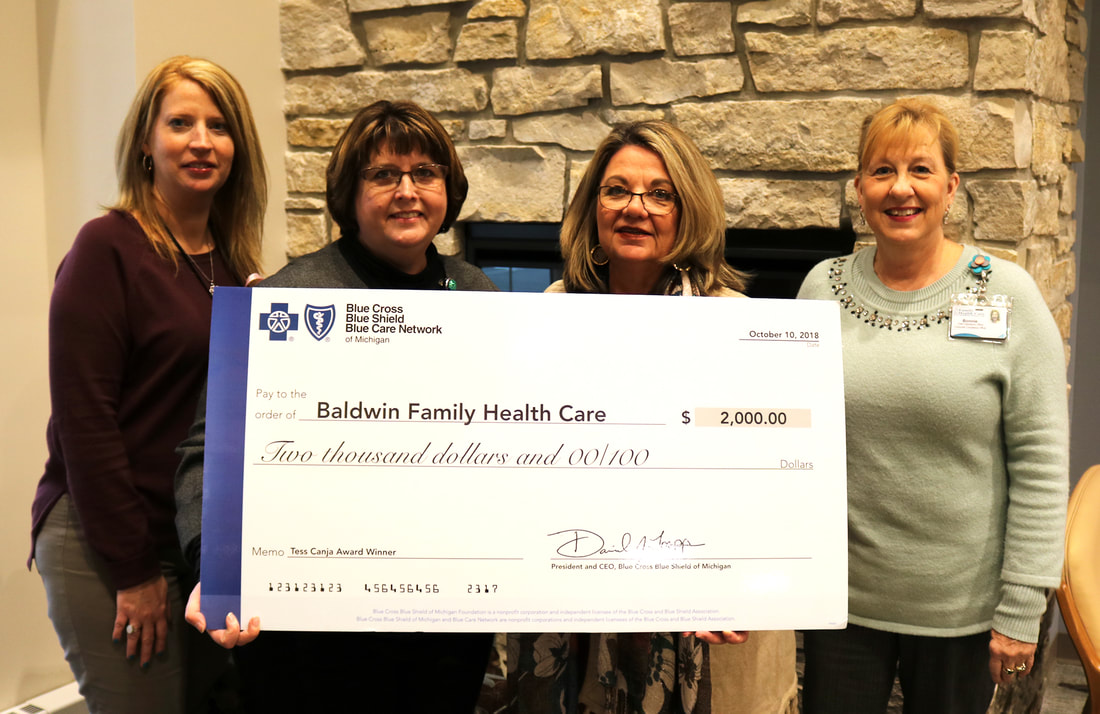|
Family Health Care receives Tess Canja Award for providing innovative services
BALDWIN– Finding ways to ensure elderly patients are safe at home is a goal of Family Health Care (FHC). One way FHC accomplishes this goal is through the organizations bathing program, which not only helps older adults remain safe by helping prevent slips and falls, but also relieves the strain on caregivers. On October 10, during the Area Agencies on Aging Association of Michigan Annual Conference, Family Health Care was presented with the Tess Canja Innovation Award from Blue Cross Blue Shield of Michigan. This award is given to social service agencies that work to improve health-related situations for older adults. Winners are selected by a committee of state-wide volunteers who consider the creativity, cost-effectiveness, replicability and quantified positive impact demonstrated. “This was a bit of a surprise since the Tess Canja Award is very competitive,” said Renee Kopach, outreach services manager at Family Health Care. “Our goal is to ensure someone’s mom or dad, grandma or grandpa is provided the care they need so their family can spend time making memories.” In 2015, in response to an identified need among its respite clients, FHC implemented the bathing service. This service is available to seniors who are not eligible for skilled home care and would otherwise have to pay privately for the service or go without. A major safety concern for the senior population is getting in and out of the shower, a task that is often difficult or uncomfortable for family caregivers to assist with. FHC respite aides assist with bathing and personal care which increases bathroom safety, improves hygiene, and decreases risk of skin break down and infection rates while providing essential support for family caregivers Family Health Care’s In-Home Respite Care program is comprised of men and women who have a passion for ensuring elderly community members receive the compassionate care they deserve while providing the caregiver time to rest and recharge. These experienced respite aides provide weekly visits during the day, on the weekends and sometimes overnight. They help with meal assistance, reading, visiting and companionship, and provide time to socialize with another adult. To learn more about respite services and how Family Health Care is working to give our elderly in the community the best life possible, visit familyhealthcare.org.
0 Comments
Your comment will be posted after it is approved.
Leave a Reply. |
Archives
April 2024
Categories |

 RSS Feed
RSS Feed